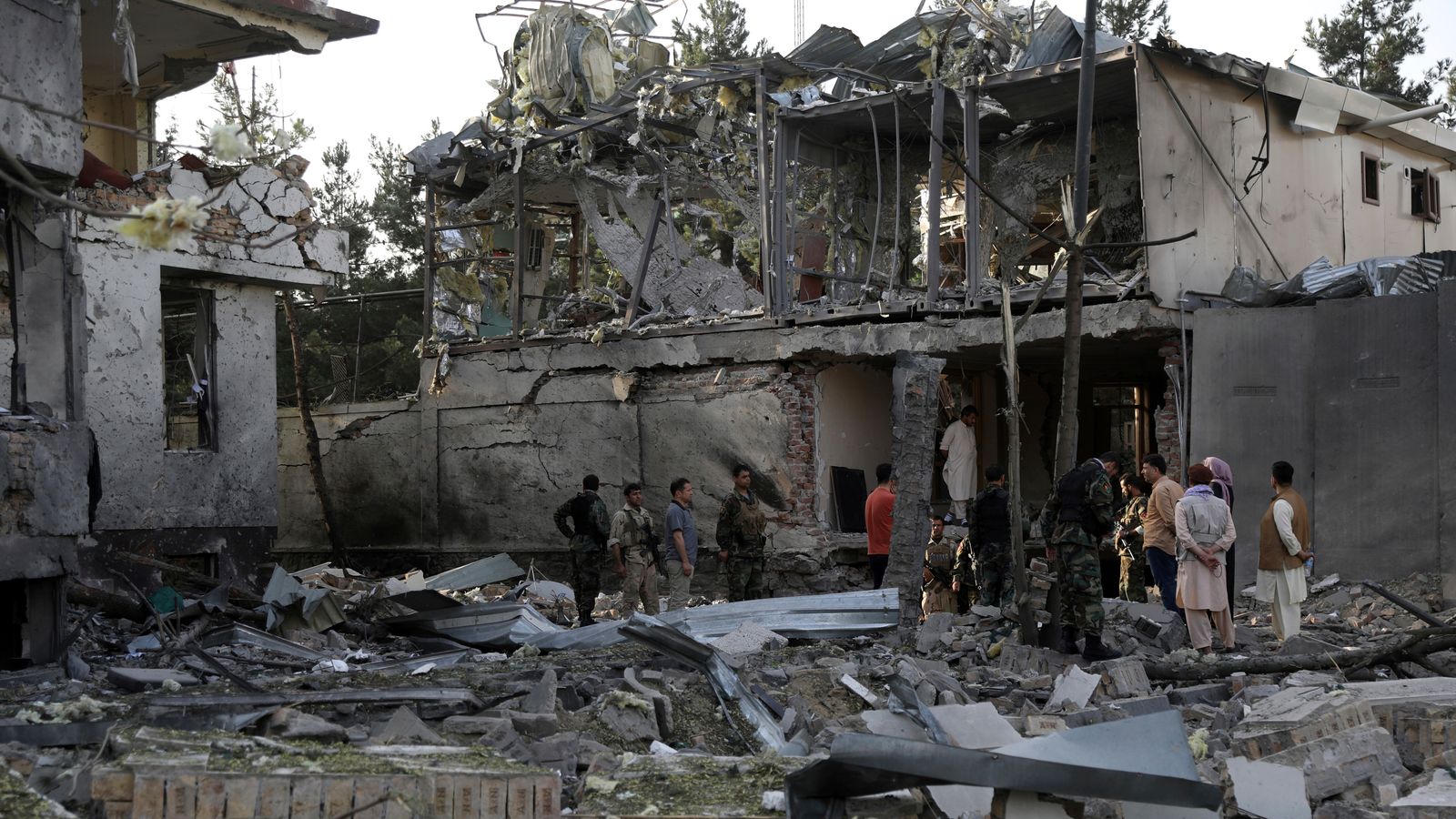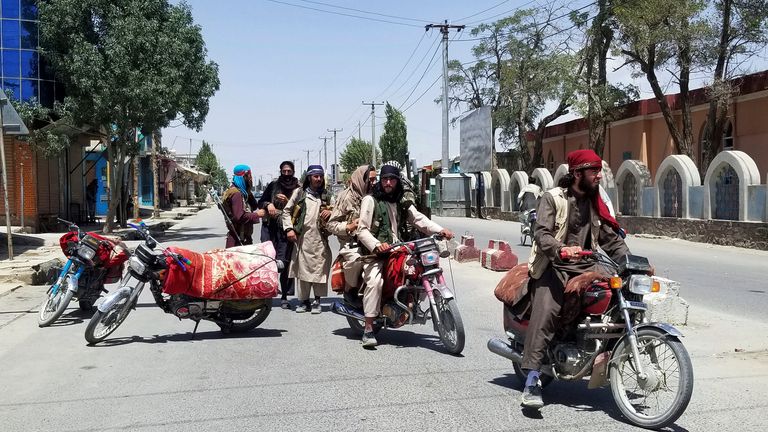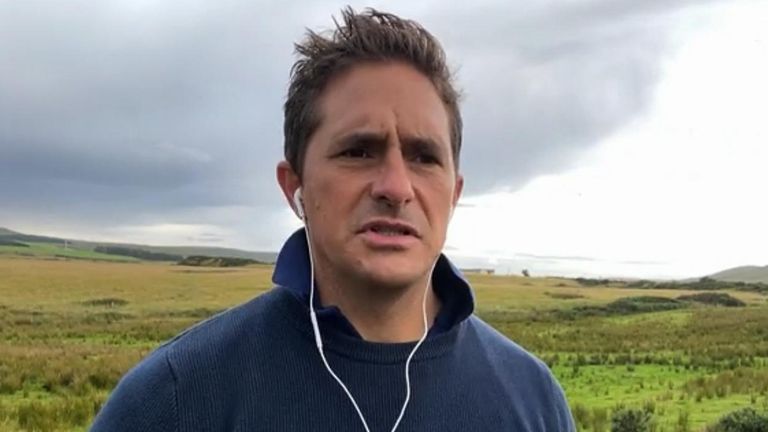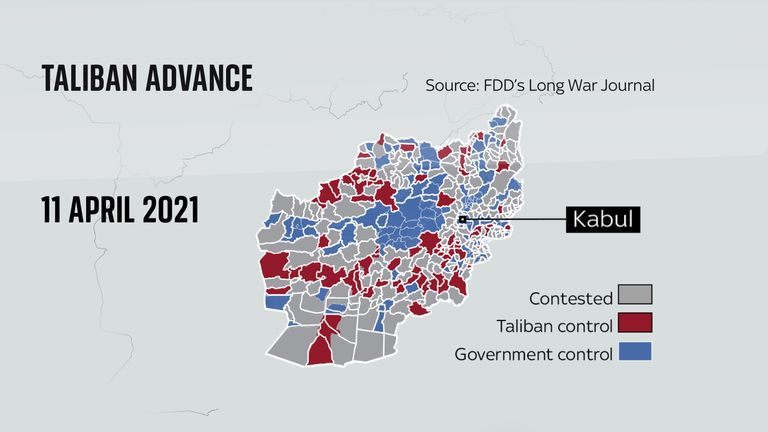Terror group al Qaeda “will probably come back” in Afghanistan as the security situation continues to deteriorate, the defence secretary has told Sky News.
Speaking to Kay Burley, Ben Wallace was highly critical of the US decision to withdraw troops from the country.
It is almost 20 years since the invasion of Afghanistan was launched in the wake of the 9/11 attacks to oust the Taliban and prevent it from harbouring al Qaeda, the group behind the 2001 terror attack on the US.
Since the initial invasion, the US and its allies have spent almost two decades and $830bn (£600bn) trying to establish a functioning state.
But with the 20th anniversary of 9/11 looming, the Taliban has seized more than a dozen cities in Afghanistan as the withdrawal of international troops continues, including Lashkar Gah, Kandahar and Herat.
US intelligence has warned that Kabul, the capital, could fall within 90 days.
When asked about the situation in Afghanistan, Mr Wallace said: “I’m absolutely worried that failed states are breeding grounds for those types of people.
“Of course I am worried, it is why I said I felt this was not the right time or decision to make because, of course, al Qaeda will probably come back, certainly would like that type of breeding ground.
“That is what we see, failed states around the world lead to instability, lead to a security threat to us and our interests.”
The defence secretary said it was his view that the deal signed by the US and the Taliban in Qatar in 2020 to withdraw from Afghanistan was a “mistake” and described it as a “rotten deal”.
He said: “I was public about it that at the time of the Trump deal – with obviously the Taliban – I felt that that was a mistake to have done it that way, that we will all as an international community pay the consequences of that, but when the United States as the framework nation took that decision, the way we were all configured, the way we had gone in meant that we had to leave as well.”
Mr Wallace said the decision to send 600 troops to Afghanistan was made “some months ago” and was not a last-minute move.
Asked by Kay Burley if it was a “rescue mission”, the defence secretary replied: “We are withdrawing, we made that some months ago clear, and the timetable we are working to is obviously the American announced timetable of September 11.
“There was always going to be a phase where you put in logisticians, air movers, command and control personnel and a force to protect that force, and the appropriate moment is to do that now.”
He added: “Their job is to make sure we can continue to process the Afghan interpreters and the wider community we have an obligation to, help draw down some of those people from the embassy that are going to come out, we reduce that footprint, and then lastly a group of what we call entitled personnel.
“Those are people who are British passport holders, there is a theoretical number, those are people such as security guards who might be working for aid agencies or, indeed, just British passport holders that we have an obligation to bring out.”




